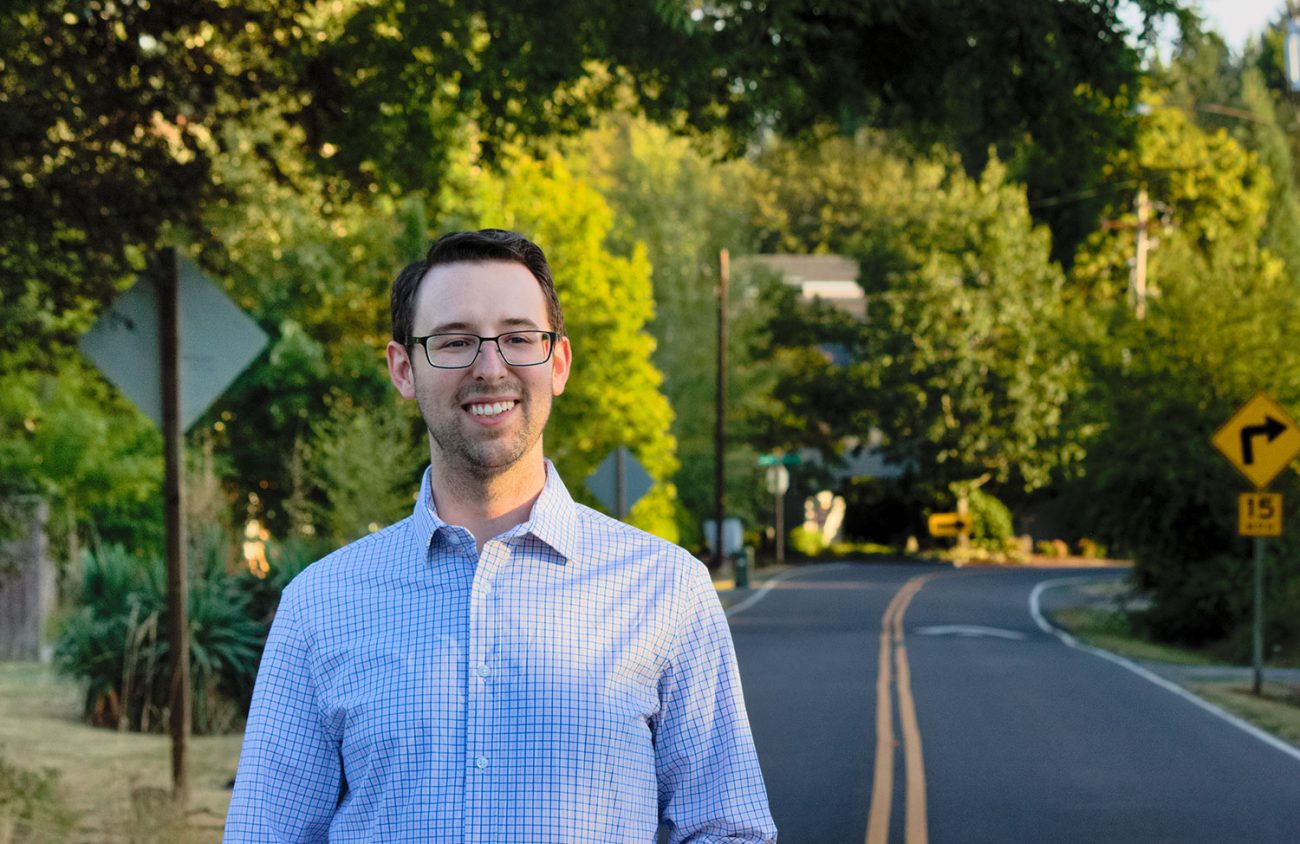With election season fast approaching, local campaigns are gearing up ahead of the May 2020 primaries. Four Eugene City Council seats are up for election next year — wards 1, 2, 7 and 8.
Ward 8’s Chris Pryor has said he will not seek re-election to his seat. Ryan Moore, 31, of Eugene has officially thrown his hat in the ring.
Moore spoke about parts of his platform, particularly focusing on the city’s continuing housing crisis, when he launched his campaign Sept. 8 at the Claim 52 Brewing taproom in west Eugene.
In his remarks, Moore recounted a story about when he and his partner were forced to move out of their home of several years, “due to the cost of rising rent,” adding that while they were lucky to have finally found a place after a long search, many are not.
“But a lot of people in our situation are not that lucky,” he said. “If you think about the people who are becoming those homeless we see on the street pushing carts, it’s the renters.”
In an interview with Eugene Weekly, Moore says that housing experience, among others, is what drove him to seek election to the council. One housing issue in particular Moore says he would like to tackle if he’s elected is how the city’s zoning rules are prohibitive for adding housing by using options like accessory dwelling units (ADUs).
ADUs — commonly referred to as mother-in-law apartments — are roughly defined as either attached or stand-alone housing with their own entrance and amenities which occupies the same lot as a main single-family home.
The city visited the issue Sept. 16 in order to bring Eugene’s ADU ordinance into compliance with the state’s new statute, House Bill 2001, but chose to table the motion, opting for further discussion.
Councilors Mike Clark and Jennifer Yeh both proposed further amendments to the ordinance. Yeh proposed a list of changes that weren’t discussed and Clark proposed tax and fee incentives, which he termed “The people’s MUPTE.”
MUPTE is the city’s controversial multi-unit property tax exemption. The council directed City Manager Jon Ruiz and city staff to look into adding those changes and come back with a revised ordinance.
Ruiz said in the meeting that he did not have a timeframe for when the changes could be made.
But even with the council’s proposed updates — as of this writing it is limited to some language changes, and removing the parking and homeowner residency requirements — the biggest obstacle Moore identifies will remain.
Eugene’s zoning rules allow for ADUs only on lots of 6,100 square feet or more in most areas. Some neighborhoods are even more restrictive. That would not change; Moore says the restriction is needlessly prohibitive.
“I have some friends who had hoped to build an ADU for an ailing family member and they weren’t able to,” he says. “They have a 5,700-square-foot lot, which is still pretty sizable. So that’s an arbitrary number I feel we could cut down.”
In addition to removing obstacles to adding housing through ADUs, Moore says he would like to remove red tape for adding more housing in general, as well as low-income housing and financial support. He says he would like to see something like a revolving loan program that assists people who need help coming up with a deposit. That frequently keeps people out of housing, he says.
Moore says he is passionate about addressing the city’s homelessness crisis.
“Up to now, our standard response to the unhoused crisis has been through criminal justice,” he says. Whether it’s giving the homeless a ticket and sending them through Community Court or having them spend 10 days in jail, neither creates lasting, positive change, he says.
“It just keeps people cycling through the justice system, which costs all of us money,” Moore adds.
He says he believes his history in social justice activism, his experience as an aide in state government and his experience sitting on the city’s budget committee all qualify him to represent Eugene. He adds that the fact he is not a politician is actually a strength.
“People are fed up with business-as-usual politics,” Moore says. “They don’t want another politician who’s going to say all the right things or grandstand or give great speeches. They want someone who walks the walk, someone who they can look back at their track record and see that they are actually doing the things they talk about, and I feel like I am that person.”
